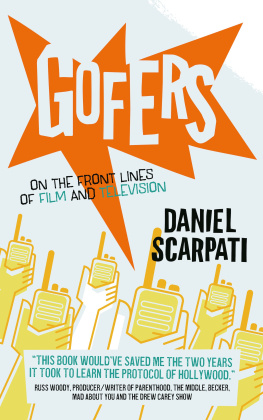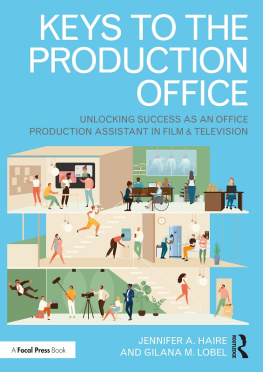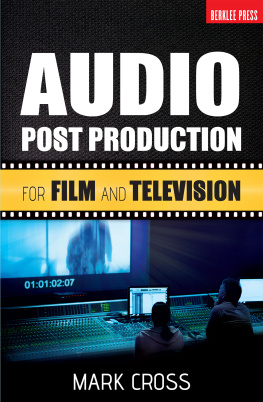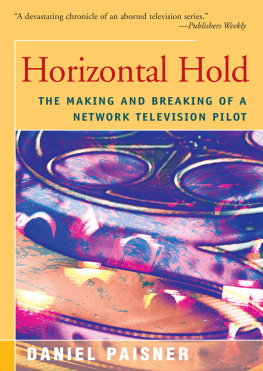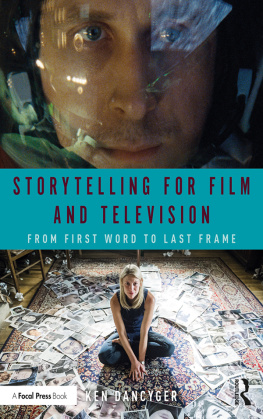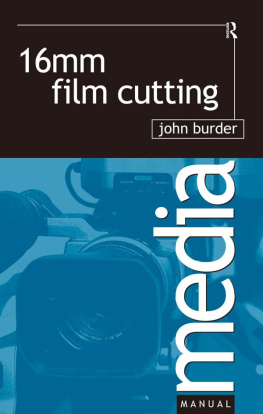Gofers:
On the Front Lines
of Film and Television
By Daniel Scarpati

Passing Planes Productions
Queens, New York
www.passingplanes.com
Copyright 2020 by Daniel Scarpati.
All rights reserved. Please do not use or reproduce any part of this book in any matter whatsoever without written permission from the author, except in the cases of short quotations or reviews.
The author and publisher of this book do not engage in rendering any legal or financial services. Individuals desiring advice in these subjects should seek assistance from qualified professionals.
For information regarding quantity discounts with bulk purchases for educational use, please contact the Ingram Book Company at 1-800-937-8200.
Library of Congress Control Number: 2020917847
ISBN (Paperback): 978-0-578-76260-9
ISBN (ebook): 978-0-578-76261-6
Developmental editing by Dawn Raffel.
Copy editing by Margaret Bunyan.
Cover design by Ben Morris.
Illustrations by Emily Ann Scarpati.
To my eternally-supportive parents, multi-talented sister and all the friends whove helped me along the path of making this book. If it wasnt for you, I wouldve given up a long time ago.
And to all production assistants whose names come last or not at all in the credits. You are appreciated.
Table of Contents
Authors Note
What youre about to read is a collection of my own experiences and interactions as a production assistant in show business. This book merely reflects my subjective but truthful recollections of these moments throughout my career (to the best of my memory).
In some cases, I must keep names and details private to avoid breaking agreements that I signed. Just because you read one person or productions name in one place doesnt mean thats who or what Im talking about in another. Education through entertainment is my goalnot getting beat up in court by a judge. Or by anyones bodyguard.
The chapters are organized so you can read selectively and focus on the sections that interest you the most. Its also worth noting that I dont like curse words, but many people in showbiz swear incessantly. In a few cases of quotations, words will appear as I heard them in real life.
Lastly, the superscript numbers youll come across correspond with the Works Cited section at the end of this book (where youll also find a Glossary of Industry Terms). Like my career, Ive forged my own reference style.
Introduction A PAs Book
Ever hear of an entry-level job where the office moves daily, co-workers change constantly and responsibilities could range from unclogging a backed-up dressing room toilet to triggering the con-trolled explosion of a spaceship in a busy New York City park?
Well its a real job, the title of which is production assistant (PA for short). Its the first one that many people have in the film and television production industry.
Why on earth would someone want this job? Why walk through the finger-numbing cold bringing crewmembers hot food during winter months, or practically pass out from heat exhaustion while standing on a street corner shouting at bogie (someone or some-thing not part of the production) bystanders during the summer?
This job is a strange rite of passage in the make-believe world of film and TV. All who start out as PAs want to grow in their crafts, meet new creative folks and leave a mark as they help tell some great story, even if that means going through the filmmaker equivalent of Marine Corps boot camp.
I appreciate how Producer Liz Gill puts it: Inside every person on a film set, including the caterers and even the surliest electrician on the truck, somewhere exists the romantic child who was first dazzled by the silver screen.
The granddaddy of my movie memories is a family viewing of Jurassic Park when I was about five years old. I sat at my parents feet near the base of a springy couch they purchased on heavy discount off the back of a furniture truck from North Carolina.
(Spoiler alert.) The scene where the T-Rex crushes a tour vehicle as it raises its head to give a deafening roar was a cover-head-with-blanket moment for me. I hope to never unsee it because in that moment, my family was transported to the island of Isla Sorna. We were there with the paleontologist protagonists, trying to evade hungry dinos. That feeling of total immersion was addictive.
I instantly made it my mission to become one of those people who could teleport audiences wherever the story took place. Directors, my parents told me they were called.
Spike Lee was the first director I caught a glimpse of in person. He was filming She Hate Me near my house in Queens, NY, and his fleet of cast campers, catering vehicles, equipment flatbeds, passenger vans and eighteen-wheelers was right outside my living room window. My first thought was how ginormous they were. Rows of aluminum-sided behemoths brimming with expensive equipment and people: lights, cameras, actors, producers, crewmembers I wanted to knock on each trucks doors, go inside and explore what-ever secrets they held.
My shyness held me back.
These shiny tractor trailers were my introduction to the business of making movies, something I would later understand as being very different from actually making movies.
Flash forward to college, where professors told me that one of the most common places I could start down my path to becoming a director was as a PA. Many film and TV success stories had done so before, like Mister (Fred) Rogers, Kathleen Kennedy, Regis Philbin and Krysty Wilson-Cairns. My ultimate goal was to tell my own stories, but I believed that working as a PA would only help me grow.
One day in Intro to Film Production, our class had the opportunity to speak with a working PA. He gave tips on how to bravely begin finding first jobs which involved running around the city approaching random crewmembers on location to ask if they knew anyone who might need a PA.
I was pretty unenthused at this plan of roaming around begging for a job that might not even exist, but he and our professor reassured us this was only how it started. Once Id made more friends and built connections, the work would come more easily.
One of the PAs I worked with after graduating from college told me that hed made so many connections and worked for so long that his book was almost complete.
No way, youre writing a book about PA-ing? I asked.
A long silence.
No, no, not a book like that, he laughed. Im putting together my union book.
Now there was silence on my end. Oh, of courseyes, I know what you mean!
I had no idea what he meant.
Turns out that this book is not a work of fiction. Its actually a large binder (or collection of binders if youve been working for a while) containing all of the call sheets, production reports, pay stubs, deal memos, crew lists and other miscellaneous documents from each production a person has been employed by.
In other words, this is a book Im sure no human being would ever willingly read. Why on earth keep all this ugly paperwork in one place? Because you might end up submitting it to any number of guilds or unions along with a membership application.

